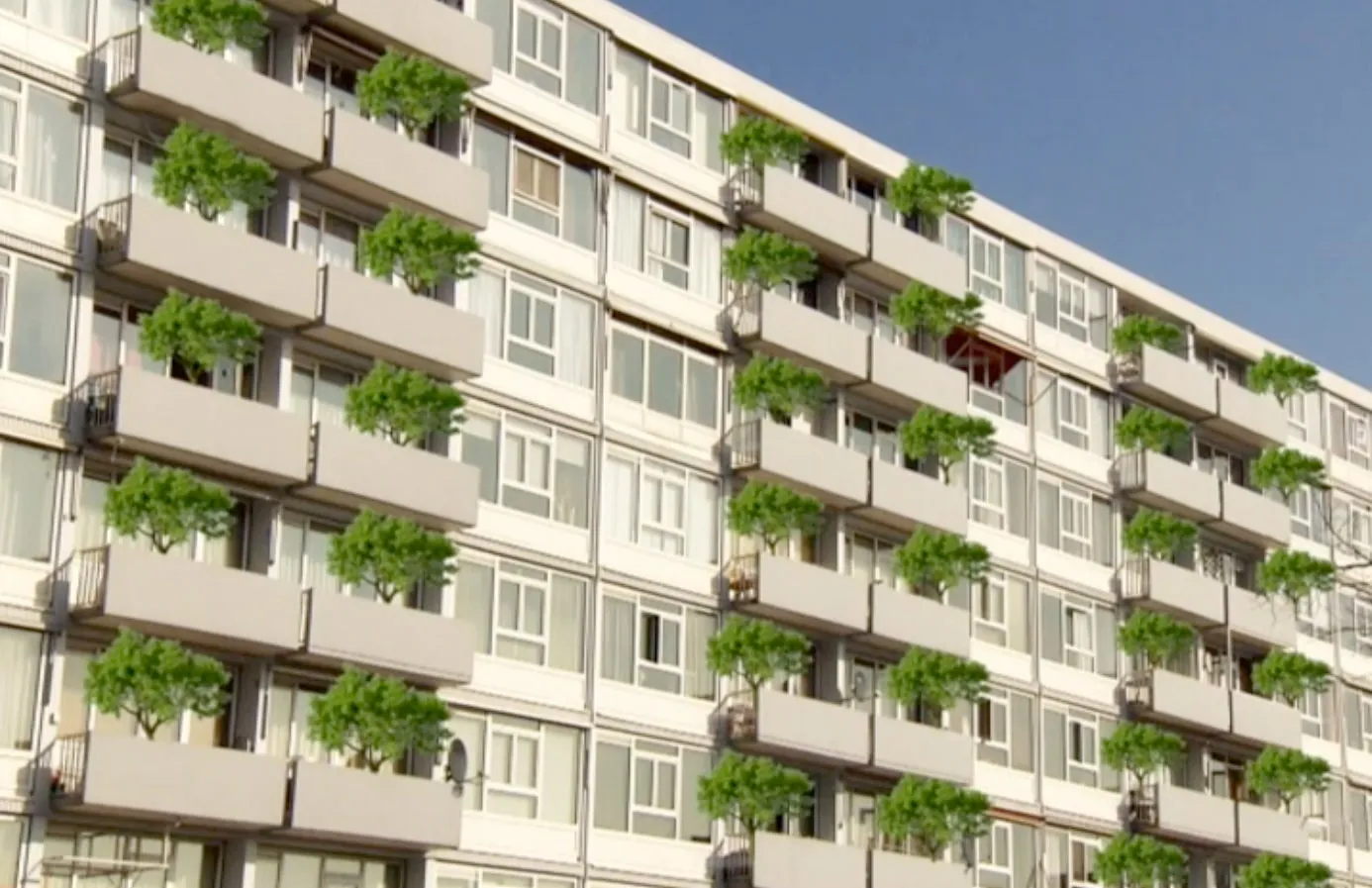Urban neighborhoods with high-rise concrete buildings are often dreary and gray. Therefore, the Urban Street Forest project aims to color our cities with the planting of vertical forests by planting trees on the balconies of high-rise apartment buildings, involving local people, shops and organizations. We recently sat down with Raymond Brouwers, co-initiator of the project, to learn more about this hopeful initiative.
Think Global, Act Local
The Urban Street Forest project wants to increase the amount of greenery present in today's often (depressingly) gray cities through a process known as 'vertical greening'. Moreover, the initiative aims to help restore soil that has lost its fertility over centuries of human impact by reforesting areas of the globe.
Neither of these goals is unique in itself; what makes Urban Street Forest stand out is the way they try to make these two kindred objectives synergize with each other.
When asked about this attempt to connect the micro- and macro-perspectives on environmental improvement, Brouwers cites the "Think global, act local" motto and says: "We buy our clothes in the shop around the corner, but it has an ecological impact elsewhere in the world. Our local actions already impact the globe, but this project is about making us conscious of that."
The project works by helping people in urban environments plant trees to improve their surroundings, and matching each tree planted in the city with at least one tree planted in areas of the world whose soil has become unproductive. For this latter part, Urban Street Forest works with Trees for the Future, an organization dedicated to helping impoverished farmers rejuvenate their land.
So far the partnership has funded the planting of almost 6000 trees.
Repurposing the anthropocene machine
Brouwers emphasizes the sheer variety of different positives associated with planting trees, from the uplifting effects of a greener environment on urban residents' mood to the restoration of soil which had been damaged by earlier deforestation.
"It's sort of like an onion," he explains. "You peel back each layer and discover another layer underneath." Look beyond the already positive impact of the urban tree-planting itself, and countless other benefits are hidden beneath it. And of course, Brouwers says, "the more trees that are planted, the better." Who could disagree?
He also talks about his moments of pessimism, such as arriving in Madrid after a long hike through the countryside. Suddenly faced with the anthropocene machine that is the modern city, he reports thinking, "Man, I am so stupid. I think I can change this just by planting trees?"
But then, he says, he had a change of perspective. "If every airplane was spitting out trees, if every truck was spitting out trees..." In other words, the collective power of human enterprise can be put to positive as well as negative ends. He cites the example of the Loess Plateau in China, pictured above, which was restored in just a few years from a wasteland to a lush green environment.
Human impact
But Urban Street Forest takes a rather more grassroots approach, working on an individual and community level. Brouwers says that as much as possible, the project tries to avoid working with subsidies, instead trying to fund their own work enterpreneurially.
"How does a trend start?" he asks, "It starts with one person, and then another, and another. It's important to me that for example in Barcelona, we have our flyers printed in Spanish. Knowing that our ideas are able to spread to regular, local people who usually wouldn't think about them, that's the most important thing for me."
You can't get that kind of personal impact without working closely with local communities, Brouwers suggests.
On a larger scale, Brouwers shares his commitment to Next Nature Network's own ECO Coin: Our sustainable currency to reconnect economy and ecology.
In the short-term, he says, the goal is to compensate existing carbon emissions through tree-planting. In the long-term, of course, he wants to see a situation where ecology is directly connected to currency by planting trees and protecting and creating nature reservations. In this way he sees trees being planted outweigh the emissions being given off.
"I hope that day will come soon," Brouwers concludes. "But in the meantime, planting trees is always a positive thing in itself."
_________________________
Your project on Nextnature.net? Join the network!
[mc4wp_form id="72385"]


Comments (0)
Share your thoughts and join the technology debate!
No comments yet
Be the first to share your thoughts!